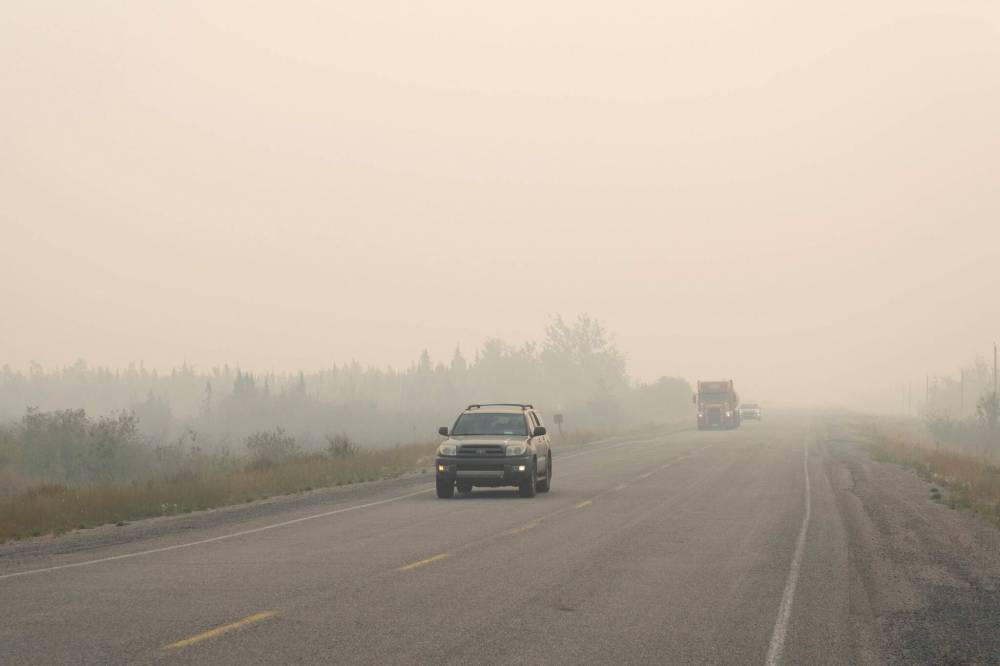Climate change: a provincial matter
Advertisement
Read this article for free:
or
Already have an account? Log in here »
To continue reading, please subscribe:
Monthly Digital Subscription
$0 for the first 4 weeks*
- Enjoy unlimited reading on winnipegfreepress.com
- Read the E-Edition, our digital replica newspaper
- Access News Break, our award-winning app
- Play interactive puzzles
*No charge for 4 weeks then price increases to the regular rate of $19.95 plus GST every four weeks. Offer available to new and qualified returning subscribers only. Cancel any time.
Monthly Digital Subscription
$4.99/week*
- Enjoy unlimited reading on winnipegfreepress.com
- Read the E-Edition, our digital replica newspaper
- Access News Break, our award-winning app
- Play interactive puzzles
*Billed as $19.95 plus GST every four weeks. Cancel any time.
To continue reading, please subscribe:
Add Free Press access to your Brandon Sun subscription for only an additional
$1 for the first 4 weeks*
*Your next subscription payment will increase by $1.00 and you will be charged $16.99 plus GST for four weeks. After four weeks, your payment will increase to $23.99 plus GST every four weeks.
Read unlimited articles for free today:
or
Already have an account? Log in here »
Hey there, time traveller!
This article was published 19/08/2023 (867 days ago), so information in it may no longer be current.
This summer was the hottest in recorded history. Ocean temperatures are rising at an alarming rate. Hurricane Hilary is set to inundate southern California with devastating amounts of rain. Yellowknife and Kelowna are under wildfire evacuation orders. Southwestern Manitoba is, again, dealing with severe drought conditions.
Extreme weather is no longer a rare occurrence. It’s the norm.
The effects of the climate crisis are playing out just as scientists have long predicted. For decades, governments have been warned of the dire human and environmental impacts of a warming world. Despite the irrefutable evidence and urgent forecasts, political action has been hard to find.

Pat Kane / Reuters Files
Vehicles leave Yellowknife after a state of emergency was declared on Wednesday.
Vehicles leave Yellowknife on the only highway in or out of the city after a state of emergency was declared due to the proximity of a wildfire, in Yellowknife, Northwest Territories, Canada August 16, 2023. REUTERS/Pat Kane - RC2YO2AHU99U
A report released earlier this spring by the Intergovernmental Panel on Climate Change determined that we are quickly approaching the point of catastrophic global warming. The world is likely going to overshoot its critical warming threshold of 1.5 C above pre-industrial levels by early 2030, if not sooner.
We’re already getting a taste of what a future beyond the tipping point will look like: fatal heatwaves, massive wildfires, destructive floods, widespread famine, unfamiliar infectious diseases. People will die, infrastructure will fail, habitats will be lost.
Time to change our behaviour is quickly running out. Strong leadership at every level of government is needed.
Yet, in the face of such existential threats to humanity, political urgency has been notably absent — if not irresponsibly directed.
As an unpredictable wildfire approached Kelowna last week, causing thousands of constituents to flee their homes, the region’s Conservative MP, Tracy Gray, was tweeting about the affordability of the federal carbon tax.
Ahead of this fall’s provincial election, Premier Heather Stefanson and her Progressive Conservatives appear poised to make the same kind of cost-benefit argument while ignoring the impending hazards of the climate crisis.
Last week, during her first campaign announcement, the Tory leader promised a legal battle with Ottawa over the carbon tax program, despite the party having already lost a similar court challenge in 2021 under Brian Pallister’s leadership. At the same media event, Ms. Stefanson provided no alternative climate policy, arguing the province is already clean and green due to its hydroelectric grid.
Based on the latest federal National Inventory Report, Manitoba’s greenhouse gas emissions have increased since 2005. We are not clean, nor are we green.
By contrast, NDP leader Wab Kinew has announced a slate of climate promises if his party forms government in October. Among them, a commitment to protect 30 per cent of Manitoba’s land and water from development, electric vehicle rebates and restored funding for environmental organizations previously cut by the Tories. It’s an approach that could pay off at the polls.
A Probe Research poll conducted earlier this year indicated the majority of Manitobans believe the current government is doing a fair or poor job of addressing climate change. The survey also identified polarizing ideologies about the existence and causes of the climate crisis, with two-thirds of residents firmly believing global warming is real and caused by human activity.
Historically, climate change hasn’t been a major factor in local elections. It’s a complex and politically charged issue that doesn’t necessarily play well at the ballot box. While most Manitobans appear to care about the environment, problems that seem more pressing — such as health care, public safety and affordability — tend to garner more votes.
That climate-related promises — regardless of how problematic — have been launched so early in the campaign by both major political parties is a notable development.
Keep in mind that the environment and economy aren’t mutually exclusive issues. Numerous studies have found that climate change mitigation will be less costly than adaptation. Proactivity is more fiscally responsible than reactivity — and proactivity involves investments, workers and businesses, too.
But inactivity? We’re living what that brings.


